With 2019 freshly started, let’s look back at another eventful year in music. In this article, I give to you my list of personal favourite releases of the past year, in no particular order. At the bottom of the page you can find a Spotify playlist with 2 tracks of each discussed release, enjoy! – Jaap van Hamond
r beny – Eistla

Eistla [self-released]
American modular magician Austin Cairns, who I have been following for a couple of years, comes out with his fourth and in my opinion his best solo full length album as r beny. It’s my favourite Ambient music release of the year, let me tell you why.
‘Eistla’ meanders as a rivulet through my memory, its soft and melancholy harmonies reminding me of my past hardships, struggles with depression, insecurities and anxieties, anything that would be considered part of the painful aspects of life. Dramatic, I know, but r beny offers some fantastic contrasts that allow a listen to ‘Eistla’ to become a cathartic experience. It does mean that listening to this album can sometimes get difficult, but pieces like ‘Florescent Dream’ and the gorgeous closing track ‘Glowing Dawn, Across the River’, prove that there is always light at the end of the tunnel.
Sound wise, the album is not unlike most of r beny’s earlier albums (‘Saudade’ and ‘Cascade Symmetry’), but the attention to detail has been taken up a notch it seems to me, and the results are mesmerising. The long, haunting chords of the album’s title song manage to stop me dead in my tracks on each listen, while the blurry frequencies of ‘Moraine’ invite me to listen closer and closer, and the minimalist, glimmering textures of the final track announce the end of the album perfectly and peacefully, as if to say: ‘I’m happy you’re still here, thank you for listening.‘
As I said before, the album flows like water; there is no fault in any arrangement, the album simply finds its own unique pace as it unfolds on to the listener, exploring melodic themes and textures with an unmatched patience and care. There’s a bright future ahead for talented Austin Cairns, and I’m excited to see how it will manifest.
altopalo – frozenthere
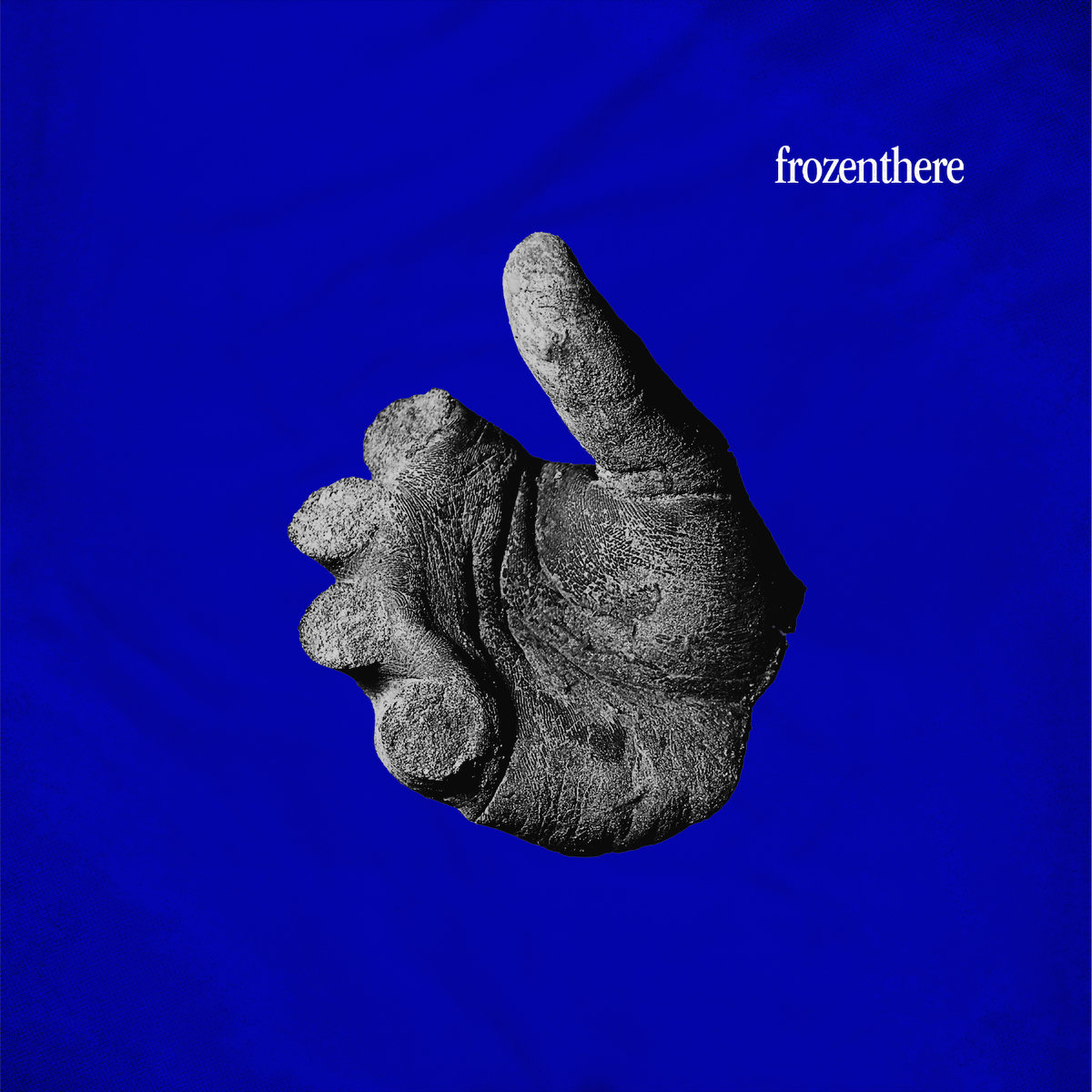
frozenthere [Samedi]
From the first seconds of ‘frozenthere’ I am intrigued; crystal clear vocals against some simplistic sine waves as an ominous noise rises in the background. Throughout the album, altopalo confidently walks the line between poppy indie music and something much more experimental.
It’s especially altopalo’s production style that gives the album its icy tinge. They lean towards minimalist arrangements where only few elements interact at the same time, drenching some in spacious reverbs while others stick to the ear like tape. These productional contrasts colourises ‘frozenthere’; soft guitars tickles the ear one moment, whereas tracks like ‘Frozen There’ and ‘Wikcer’ prefer distortion and warped, sometimes almost unintelligible vocals.
Lead singer Rahm Silverglade switches up his style often, going from intimate and almost seductive in the intro of ‘Frozen Away’ to agonized and extravagant on ‘Pulp’. The album’s centerpiece ‘(Head in a) Cloche’ begins in a familiar manner: warped vocals (autotune, it sounds like) and a chord progression played by a set of cute, jittery sine waves. A short bridge comes in later with some of the cleanest fingerpicking guitar I’ve heard this year, before the song explodes one last time into chorus and Silverglade’s vocals outro the track singing that ‘it’s time’.
With lyrics largely unavailable due to the album’s relative obscurity, it’s not become particularly easier to distill an overall narrative from ‘frozenthere’. But pairing some clear moments with the album’s textural tendencies, the title ‘frozenthere’ seems to illustrate, to me, an ache for connection with someone. A real, intimate connection, not like the ones we see often presented on social media. Closing track ‘Terra’ illustrates it clearly, this place of uncertainty: ‘Scroll down, counting thumbs, still dreaming of the hearts you hold. ‘Cause they’re everyone you know, don’t you know?’
Jon Hopkins – Singularity
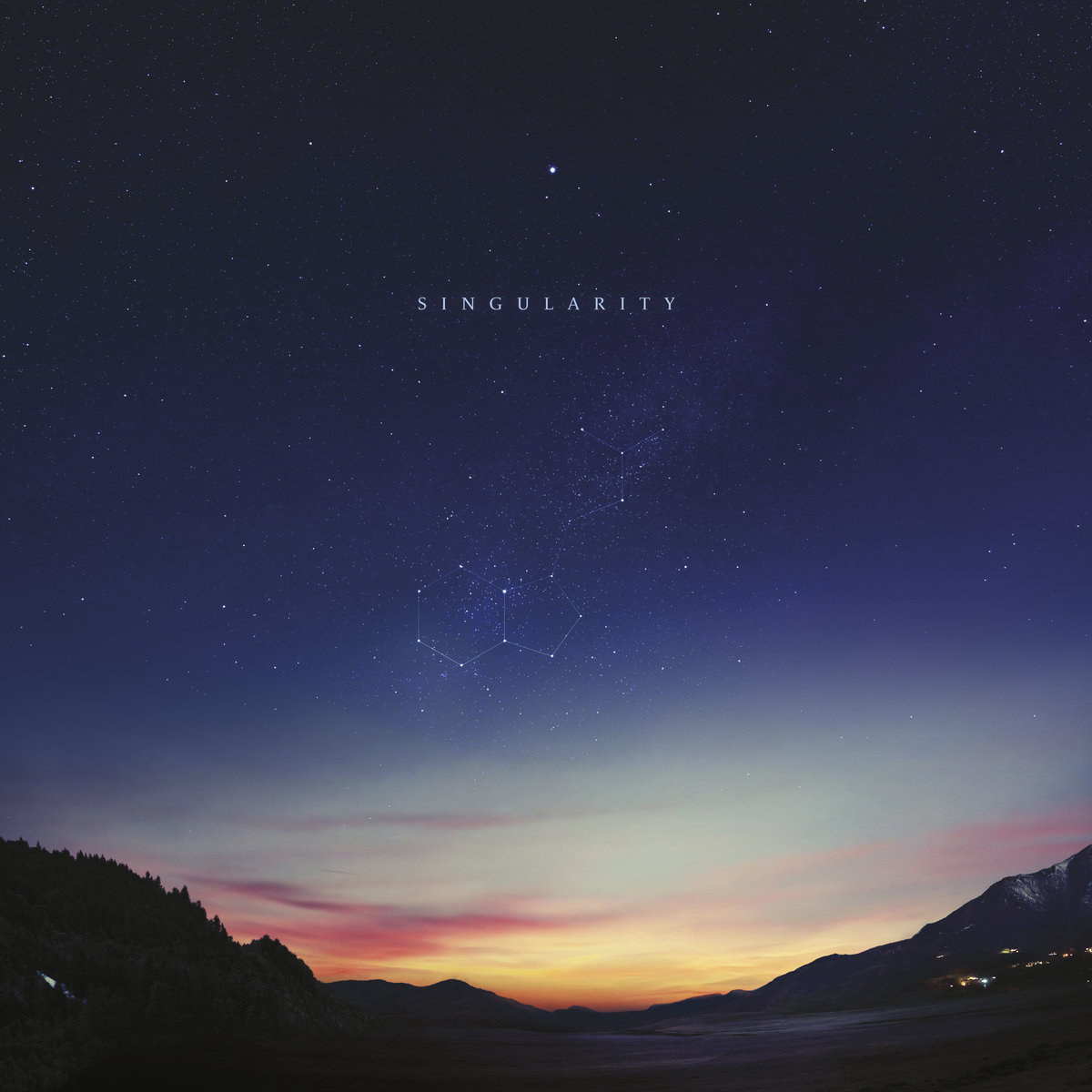
Singularity [Domino]
With his first full-length since 2013’s ‘Immunity’, Jon Hopkins once again made waves in the electronic music scene and beyond with ‘Singularity’. The album continues the general atmosphere on ‘Immunity’, with pumping techno beats, breathtaking ambient interludes and gripping polyrhythms.
The morphing patterns on ‘Emerald Rush’ are the first highlight, and Hopkins quickly shows off this remarkable feel he has for working with rhythm; while his tracks are obviously laid out on a tight grid, he effortlessly shifts around the position of the first beat, transforms duplets to triplets and forces the listener to pay attention because he is not building repetitive themes.
Later on ‘Everything Connected’, the heaviest track on the album that goes on for a good 10 minutes, the theme is easier to follow and so Hopkins does what has to be done: he focuses more on sound design, details in his percussion, carefully building a lavish arrangement around this incredibly simplistic two-note theme. The build that starts just over 2 minutes in goes on for almost 2 minutes and gathers plenty of hype, before going back to the main theme, but more roughly textured, with wide pads keeping the atmosphere grand, and an upgraded, hard-hitting house beat. It’s an incredibly satisfying payoff, but even that is not enough for Hopkins, for in the final minutes of the track he goes through another variation of the theme, now more minimal and mechanical, gnarly and glitchy.
Starting at ‘Feel First Life’, the album takes a well-needed turn. The pummeling kick-drums are mostly gone, and introduced are beautiful piano motifs, a tremendous choral passage and for the listener a sense of wonder emerges. If you let them, the soundscapes and melodic textures will produce vivid scenes before your eyes, colourful and realistic.
The last time ‘Singularity’ returns to some dancefloor-suitable material is on the album’s longest track ‘Luminous Beings’. But it’s still a beautifully understated piece, based around small clicks and pops and a simple bassline that features an ethereal atmosphere of floating violins before blending into piano outro ‘Recovery’.
‘Singularity’ is a journey first and foremost. Songs fuse into each other and even though the contrast in dynamics is great, there is a transcendental harmony between the pieces. Overall a stunning electronic music record that deserves your full attention.
Monophobe – Screw Drivers

Screw Drivers [Prrrrrrr]
When this 6-track project was released in February, I already knew it was going to stand the test of time and become one of my favourite releases this year. And I wasn’t wrong: ‘Screw Drivers’ remains a dizzying collection of meticulously produced tracks that are filled to the brim with colourful sound design and carefully broken rhythms. The improvised melodies and dense harmonies give the EP a jazzy nature, while the production and sound design are responsible for shrouding the music in a sort of kaleidoscopic, psychedelic haze. While very much in the realm of something you could hear on a label like Brainfeeder, Monophobe has carefully crafted his style into something entirely his own; ‘Swimming’ features a synth that seems modeled after the sound of a fairground organ and the choirs in ‘Fluffy Lynx’ are obviously fake but make the track come alive in a spectacular manner. The harmonies in ‘Prague This’ just keep on running away from each other while the cascading melodies in the fast-paced ‘Dribble Dance’ make for a very entertaining and fun closing experience.
5Ho7 is undoubtedly the craziest tune on the release, it’s most intriguing principle being that it’s at the same time catchy and chaotically incomprehensible. The rhythms are lopsided, the sounds beyond chaotic, but it’s all glued together somehow by the lead melody that later warps into the bassline and fittingly ends the track in an abrupt manner.
‘Screw Drivers’ is an EP that you should listen to because it simply sounds incredible. There’s not really any deeper meaning or conceptuality going on, but that’s more than fine, because it allows the tracks to relish in all their mind-boggling sonic complexity.
The Cradle – Bag of Holding

Bag of Holding [NNA Tapes]
A delightful mixture of guitar, woodwinds and string instruments greet the listener gently on opener track ‘Sweet Dreams’. Grab a cup of coffee or tea, and take some time of your day to reflect on this wonderful little album from The Cradle about anecdotes, daily life and the mundanity of recollection.
With his somewhat nasal voice, Brooklyn resident Paco Cathcart sounds almost bored at times, but due to the clarity and liveliness of the instrumentals, it construes a carefree atmosphere that makes the listener receptive to the many stories told on ‘Bag of Holding’.
The title track is made up of clouds of guitar and violins, the chords zigzagging unevenly while Paco and a female singer tell the poetic tale of a journey they were on, speaking in both literal and figurative manners.
It’s refreshing how The Cradle steers clear from the trend in this type of guitar-based folk music to focus on sadness and pain. While writing about those topics is something I will always support, there can exist a tendency to wallow in these feelings, which to me has proven to be an unproductive coping mechanism. ‘Bag of Holding’ reminds you to accept who you are and who you were, and live in the now. Notice the beauty in your surroundings, recall the way your friend laughed when you hung out that one time last year, notice the passing of time and how it alters the way sunlight enters your room, but don’t dwell on it too long.
The recordings on ‘Bag of Holding’ are pristine, the guitar fingerpicking continuously wide and clean, to which low clarinets and sometimes brass add their fuzzy warmth, flutes their playful fleetingness and strings their stretched, expressive textures. It all comes together joyously and impressively, a great success for The Cradle.
Audialist – Somewhere on Spaceship Earth

Somewhere on Spaceship Earth [Substruct]
When this was released out of the blue on the last day of November, I jumped out of my chair with excitement. Audialist is responsible for releasing some of the crispiest electronic music mostly in the form of his 2015 ‘Square One’ EP, but has never really enjoyed a widespread appreciation. And after 2015 the project even grew quiet, although there were some releases from the producer under his own name Felix Johansson Carne (that I also highly recommend).
And while ‘Somewhere On Spaceship Earth’, at 7 tracks and 32 minutes, is maybe not a conceptual masterpiece, the album is a sonic treat for your ears, with Audialist flexing his production skills, and creating textured atmospheres that can both move you or make you want to move. His ear for rhythm is something else, with the smallest details frisking around the listener, going from extremely close to far away, distorting and then washing out.
Audialist is one of a growing number of artists in the current electronic music scene who seem to take an increasingly organic approach to their sound palettes. Carne’s songs are based on symbiosis between electronic and acoustic elements, the result being an album that sounds like an intimate afternoon traveling through the many different ecosystems of a forest in spring. By playing around with timing and layering cleverly, patterns and melodies never feel repetitive.
Standout track is the title song ‘Somewhere On Spaceship Earth’, where Audialist for a moment completely leaves behind the jittery edges of his sound and ventures into the wide open, with a driving breakbeat and warped, euphoric piano melodies to accompany it.
And as the outro track ‘It’s Not Your Choice to Wake Up in the Morning’ computes out of existence, I sit in stillness and ponder that title for a short moment; it might sound bleak on its own but in the context of the album it brings with it a sense of admission and encouragement.
Celer & Forest Management – Landmarks
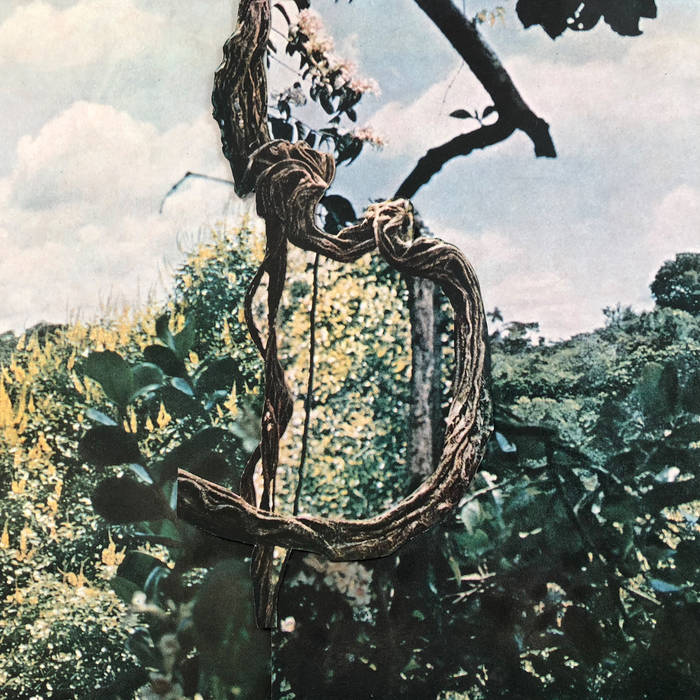
Landmarks [Constellation Tatsu]
‘Landmarks’ was this year’s first ambient album that truly stuck out to me. One reason for that is the continuity of it, you really get the most out of this record if you listen to it from start to finish. I was naive enough to put the entire album in my ‘Fav Albums of 2018’ Spotify playlist, and ended up skipping the tracks on the album when they came on on shuffle. ‘Landmarks’ is an extremely cumulative listen, and I would advise you to treat is as such.
There is something ancient about the way this album treats sound and texture, producing vivid atmospheres in my head of places that are lost to humanity and will never exist again. Another interesting thing is that the first and last track are both by far the longest on the album, each having a length of near 10 minutes. An effective way to test a listener’s patience.
‘Landmarks’ has a somewhat lo-fi aesthetic, reminiscent of Biosphere’s music, heavy in samples and filtered pads. But it’s not the kind of lo-fi that you easily chill and study to, as Celer & Forest Management shroud their production in a dark glow, the result of cluttered background noise and masses of frequencies that stick closely together.
The track ‘Indistinguishable from Magic’ is a personal highlight, a beautifully dense pad that flows slowly and subtly stretches and contracts, with the softest higher frequencies buried under the lengthy chords.
A narrative is built not only by the shared textures and atmosphere throughout the album, but also by several short excerpts from (I think) movie scenes. In one, a mother says ‘When you’re young, the world seems like a big and strange place. If you think about it too much, you start to worry’, and later you hear a man solemnly say ‘Ice, is civilization’.
Desolation is a word that comes to my mind for this album. ‘From Fire, Ice’ is a cold piece of noisy drone texture that circles around your head for three minutes, breaking the album in two before returning to wide, frosty pads.
‘Landmarks’ is a lonely voyage through parts of the world that exist no more or never existed. Some are untouched by mankind and others have been defiled by it, and the residue is a sorrowful collection of compositions that take their strength from sound and repetition.
Jean Grae & Quelle Chris – Everything’s Fine

Everything’s Fine [Mello Music Group]
Last year I was introduced to Quelle Chris by internet’s busiest music nerd Anthony Fantano. This year he released a collaborative record with Jean Grae, and while I might not be a connoisseur on the genre, ‘Everything’s Fine’ is my favourite hip hop album of the year. Grae and Chris are funny and topical from the beginning, referring to the whole rap music scene as a ‘scam’ on the first song ‘My Contribution to This Scam’, lovely.
The production is rather psychedelic, groovy and at times like a mantra. But it fits the album’s narrative: make sure that that everything’s fine with yourself, who cares about what else is going on in the world, you’ve got enough on your plate! Present your good side to others, because no one cares about the bad stuff you’re going through anyway! Satire, of course, but a mindset that can have many negative connotations.
Highlights are Chris’ first verse on ‘Gold Purple Orange’ where he tackles the ridiculousness of a bunch of stereotypes, the track ‘Zero’ where Grae is an unstoppable force of flawless flows and confident bars, and the gorgeous closing track ‘River’ with its tasteful strings sample.
Many guests appear throughout the album (including Nick Offerman, who is related to Grae), but they never steal the show from Grae and Chris. Their charisma is captivating, and while many of the tracks seem sort of silly at first, the two delve into deeper territory as well with the same satiric mindset, and suddenly the album gets dark.
‘Breakfast of Champions’ is particularly incredible: an unsettling instrumental with warbling harmonies with the two rappers’ distorted voices delivering sharp commentary on the US police brutality problem. ‘Waiting for the Moon’ is enticing as well in a very different way, reminding listeners that life is short, unfair and can get very tough, but that good times are likely around the corner if you put in the work.
‘Everything’s Fine’ is an excellent album on the modern world we live in and the fact that a lot of things in that world are definitely NOT fine. Jean Grae and Quelle Chris are both excellent producers, great lyricists, skilled rappers and on this album that all comes together perfectly. It’s educating, funny, thought-provoking, just really really good actually in about every way.
Yves Tumor – Safe in the Hands of Love
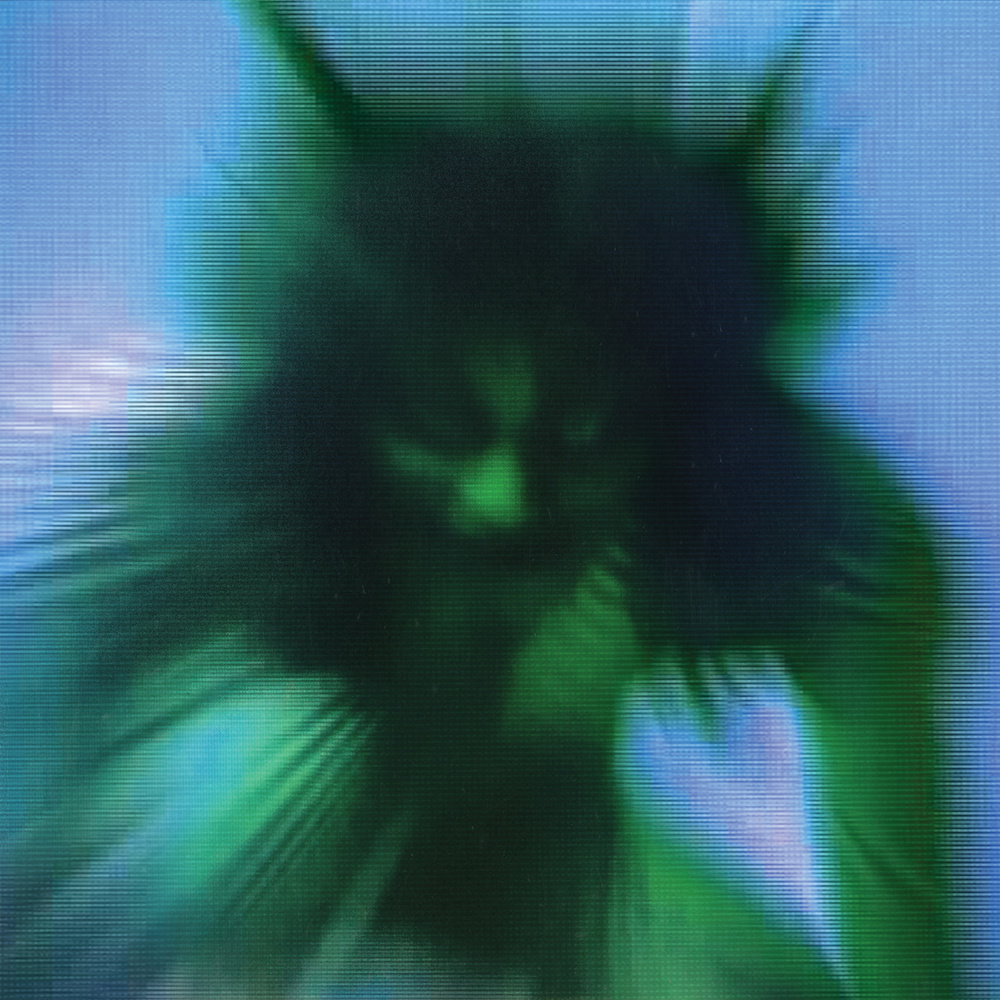
Safe in the Hands of Love [Warp]
An album like no other, ‘Safe in the Hands of Love’ has struck me as one of the most confusing but enthralling listens of the year. Unfamiliar with Yves’ earlier work, I had no idea what to expect the first time I played this. This album somehow shapeshifts constantly from genre to genre, somehow finds unity in incoherence and blends the new with the old. Upon hearing cuts like ‘Economy of Freedom’ and ‘Honesty’, I was thinking along lines of artists like James Blake, the way the song had elements of deep dubstep but approached it from a singer-songwriter’s point of view.
If you’ve heard the album, you can imagine how surprised I was by the turns this album took. On ‘Noid’, the vibe at first seems more upbeat and cheerful, with the strings samples and powerful drums. But when listening to the lyrics, the true identity of the album creeps around the corner. ‘Have you looked outside? I’m scared for my life,’ Yves sings, and later, featured artist James K sings ‘Sometimes I get scared, lost in my own mind, trying to find myself’ after a bridge of screaming distortion has taken some time to agonize the listener and let them know just what it feels like to be lost in your own mind, trying to take hold of anything that might make sense and tell you who and what you are.
The production and mixing on ‘SitHoL’ can be confrontational at times, with harsh compression and suffocating seas of high frequencies and distortion, but it serves as an effective contrast to the few minimal parts on ‘SitHoL’
The most aesthetically beautiful part on ‘SitHoL’ comes in ‘Lifetime’, where Yves begs in a tortured voice: ‘Give me three more weeks to sort this out, I swear I’ll prosper’. After that the album plunges into dystopia, with an overwhelming drone piece accompanied by powerful spoken word.
‘SitHoL’ seems both an examination of the current state of the world and a snapshot of the chaotic mind of someone crazy, courageous, tortured, loving. It is not an easy listen but in the end you will find yourself lusting for joyous battle against everyone and noone, but especially yourself.
Geotic – Traversa
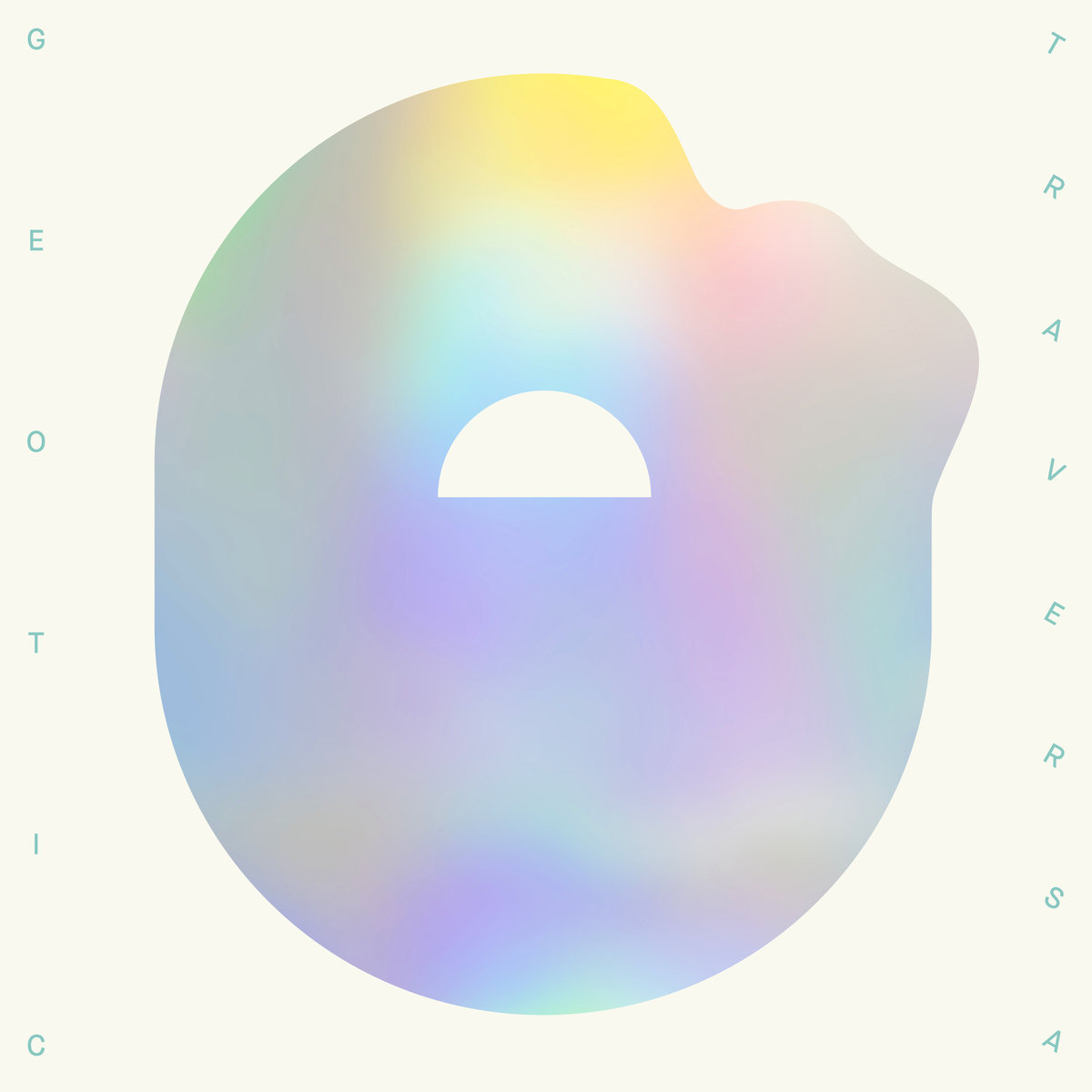
Traversa [Ghostly]
After last year’s ‘Abysma’, Will Wiesenfield graced us with another album from his project Geotic. Now, I liked Abysma, it has some amazing highlights (the biggest one for me being ‘Actually Smiling’) but the record did leave something to be desired; some songs felt a little long-winded or non-essential. But on ‘Traversa’, Will has delightfully refined his skill for writing pleasant electronic music with the odd vocal here and there.
What sets ‘Traversa’ apart for me is the way it can produce images in your head of a pleasant sunny afternoon bike ride, a colourful sunset near the coast of some tropical island, or a scene of bustling city life made into something simplistic and not anxiety-inducing.
And while the most part of ‘Traversa’ is innocent and merry, Wiesenfeld knows also how to tug at your heartstrings; the violins near the end off ‘Swiss Bicycle’ affectionately cover the main melody in a melancholy blanket, the soft vocals on the dreamy instrumental of ‘Aerostat’ talk of an ending love with remarkable delicacy (‘I penned my notes, and worked the most I ever have, on human growth’) and the indecisive harmonies of ‘Terraformer’ entice the listener to follow Geotic on his space flight through the intricacies of mind and heart.
Even though Wiesenfeld has often (and correctly) labeled the Geotic alias as more passive and easy listening than his ambitious Baths project, there is a lot to uncover on ‘Traversa’. The album will confidently change the context around what you thought was the most important element of the song through the use of harmonic change-ups or rhythmic playfulness. Furthermore, the album is littered with subtle field recordings that encourage the listener to let their thoughts float to wherever they seem fit.
Ariana Grande – Sweetener
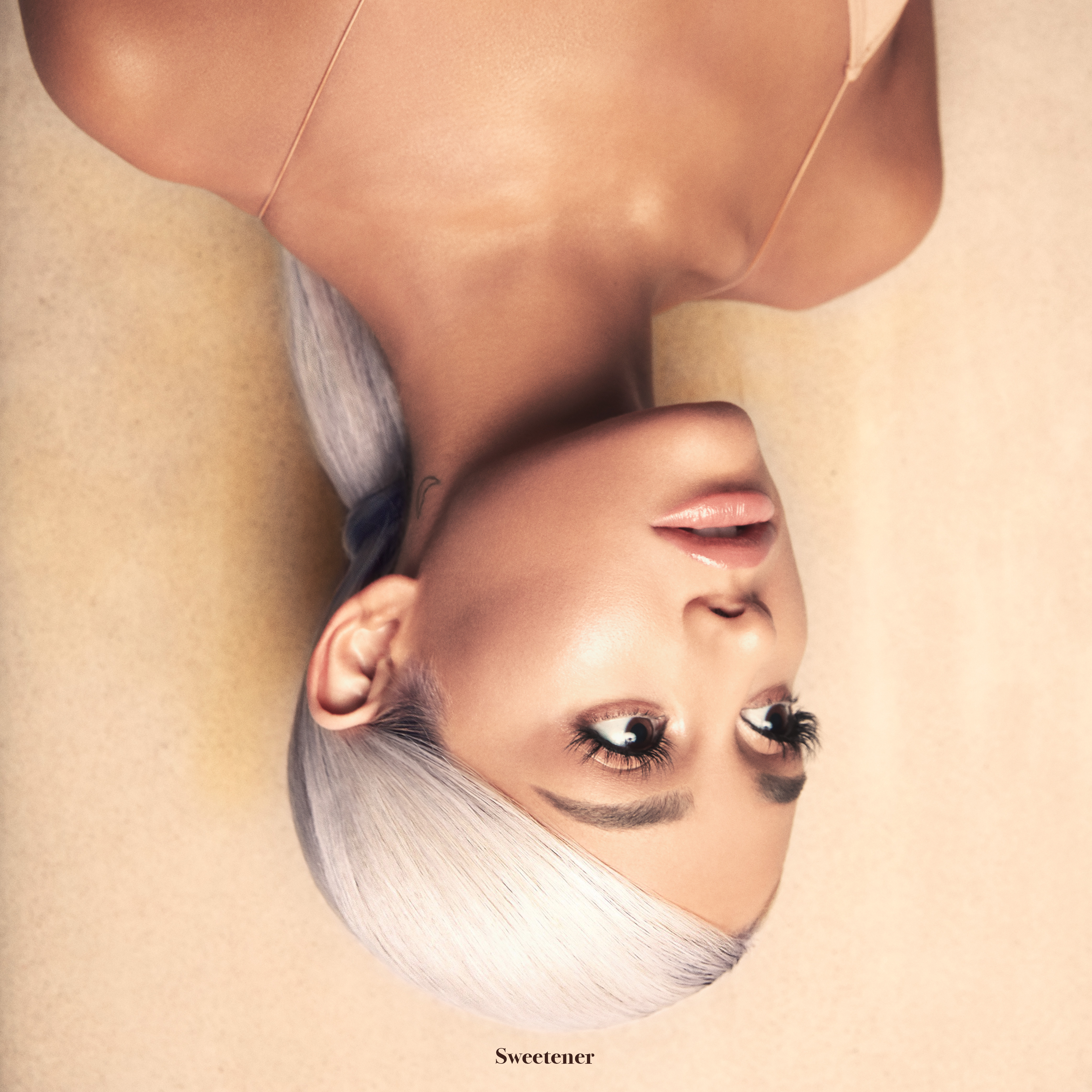
Sweetener [Republic]
Another album I surprisingly enjoyed was Ariana Grande’s ‘Sweetener’. Unless you’ve been living under a rock, you will have heard something off this album this year, whether it be the uplifting ‘no tears left to cry’ or the powerful ‘God is a woman’. But there’s more to ‘Sweetener’ than a handful of catchy hooks.
My favourite thing about Grande is her vocal skill and intuition, with the production and sound palettes fitting her perfectly. Capable of singing low and hushed, as well as high and authoritative, she demands attention to what she’s saying. Vocal harmonies are plenty on the sultry ‘R.E.M’, and melodic runs are performed effortlessly on empowering trap-pop anthem ‘God is a woman’.
Ariana presents herself as equal parts confident and comfortably searching. Highlight ‘successful’ sees her encouraging other women to chase after whatever kind of success they want, while in ‘breathin’ she talks about her difficulties with anxiety attacks, likely linked to the bombing that happened at her Manchester concert in 2017.
With many tracks produced by no other than Pharrell Williams, the influence of Trap throughout the album is undeniable, but paired with Grande’s soulful vocal melismas and harmonies it doesn’t feel formulaic but actually quite refreshing in the current pop landscape. The strings in the outro of ‘better off’ are a breathtaking and complementary end to the track centered around leaving a toxic relationship. Inspiration Imogen Heap is covered on ‘goodnight n go’ and (now ex) fiancee Pete Davidson is serenaded on a short but sweet tune named after him.
All in all, ‘Sweetener’ is in my opinion, the best mainstream pop album of the year. Ariana Grande writes catchy hits, sings beautiful harmonies and melodies with her superb voice, and touches on sensitive subjects with a realness that is not very common for artists of her status.
Quok – Krov
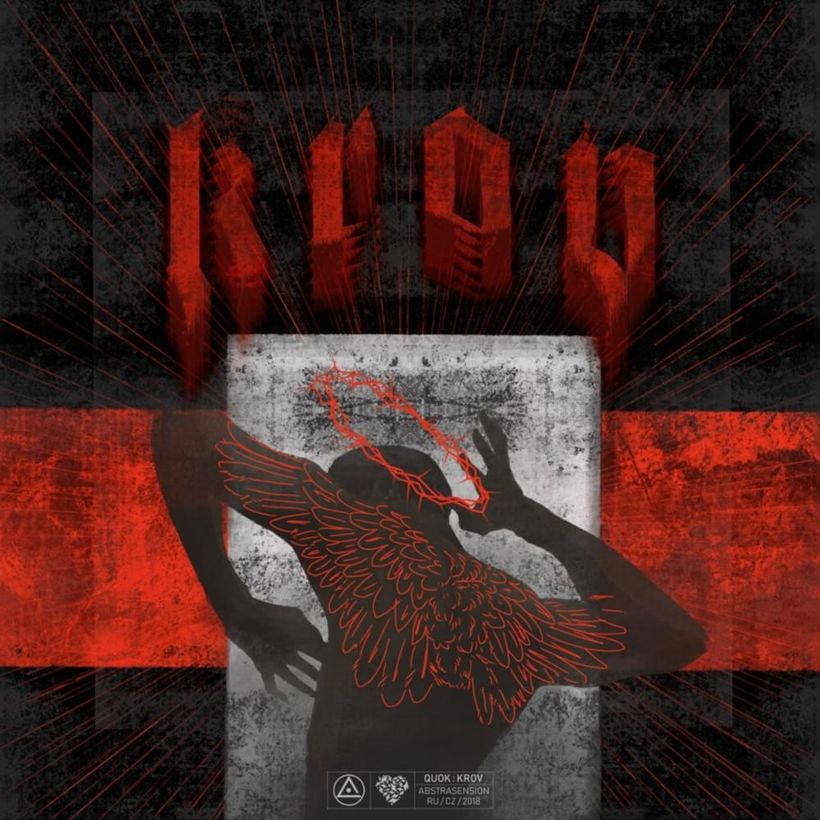
Krov [Abstrasension]
2018 saw the release of yet another album from the massively overlooked electronic music producer Quok. Hailing from Russia, this dude has been releasing quality full lengths since 2015, this year’s ‘Krov’ being his fourth. His sound is instantly recognisable; analog-esque but still with undeniable influences from modern-day dubstep and bass music, harmonic contexts that shift and transform. But don’t be fooled, on ‘Krov’, Quok brings a narrative to the table more fully-formed than on his other albums, adding new elements to his composition like his own voice, guitar and even saxophone on the brilliant ‘Euphoria’.
On the intro track ‘Hello, Machine’, he cleverly references past track-titles in his lyrics, and the high energy instantly pulls the listener in. Vocals are one of the album’s strengths, made even stronger by their scarcity; while maybe not an experienced singer, Quok delivers his lines with passion and dedication.
Quok’s production is pristine and rich; whenever his voice appears it is heavily processed but still understandable, harmony and melody intertwine in a remarkable fashion and his drums present themselves acoustically as convincingly as they do digitally.
While he is somewhat well known in particular scenes, and I believe also quite successful around Russia and Prague, ‘Krov’ was not met with the praise and attention that it deserved (in my opinion) around its release in October. As a long time fan of Quok, it’s encouraging to see how he manages once again to sound completely like himself, yet also make ‘Krov’ another singular moment in his discography; while it features some of his boldest productional and compositional moments it is also subdued and introspective somehow. Even the heavier cuts like ‘Mojdom’ and ‘Anesthetic’ fit into his atmosphere perfectly.
Overall, ‘Krov’ sounds to me like an album from a young adolescent who is starting to understand the implications of his own heritage and how every individual is shaped by their surroundings and the culture they grow up in.
Tourist Kid – Crude Tracer
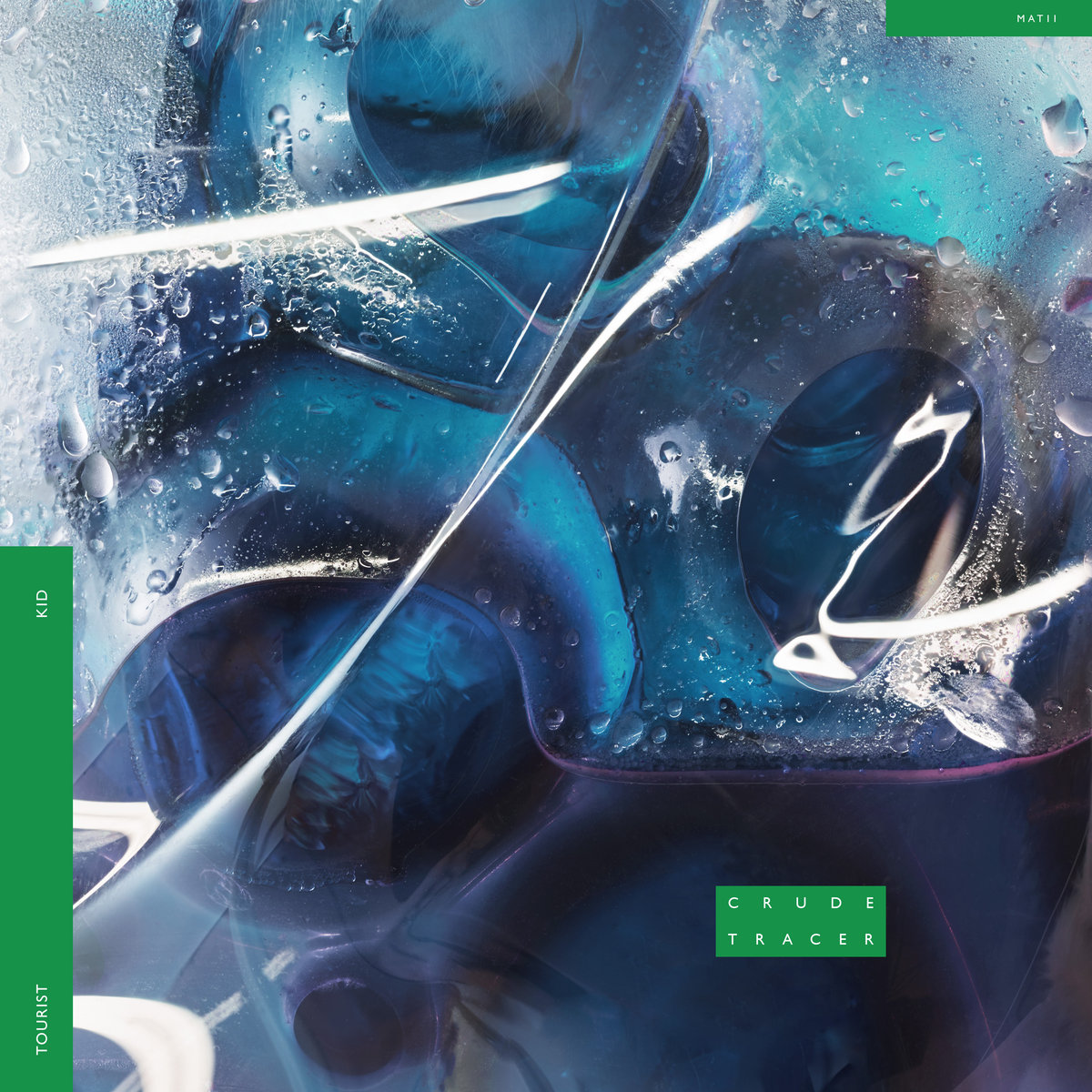
Crude Tracer [Melody As Truth]
From the Melody As Truth label came this year an album from Tourist Kid. I was drawn to it by the name ‘Crude Tracer’ and the strange, plastic cover art with the soft green text boxes. What I got was an album with some of the most exciting approaches to textural sound design that I have heard this year. The tracks on ‘Crude Tracer’ glimmer bright as a star and malfunction like a stream of chaotic data. The intro to ‘Discourse II’ is a fractured collection of turbulent notes and glitches, which somehow transforms into an aerial soundscape supported by vocal textures.
On one of the more accessible tracks ‘Learn’, Tourist Kid introduces a grid and rhythmic themes. The glass-like structure of the song is wonderfully smooth, despite the gleaming high pitches that pierce throughout. Tourist Kid works with high tones in a way that I’ve never really heard before; throughout his compositions, the narrowest of frequency bands will pierce through the mix, like a beam of sunlight falling through a magnifying glass, concentrating its energy to a tiny point.
Tourist Kid is a careful musician, his arrangements long arcs where the smallest sounds slowly add up to form a grander whole, densely layered and made of synthetic fabric. Still, the magnetic pull between all the elements makes the tracks come to life in a thrilling fashion.
Another standout cut is ‘Bacterial’, the most minimal song on the album based around a heavily altered piano. Noise sweeps from here to there as the piano plays its beautiful, contemplative theme, weighing heavy because of the large reverb.
‘Crude Tracer’ is in my opinion one of the most overlooked albums of the year, especially for the electronic music scene it was remarkably unnoticed. It’s gorgeously composed, with thorough attention to detail and one of the most intriguing and breathtaking sound palettes that I have come across, maybe ever.
Denzel Curry – TA13OO

TA13OO [Loma Vista]
I was already into Denzel Curry’s work, so my excitement for his new album ‘TA13OO’ was high. In the current mainstream rap scene he is one of the most interesting, versatile and skilled rappers, capable of bringing soulful, old school vibes on the first part of the album, and the heated metal-infused cuts near the end.
While often put in the category of Soundcloud rap, Curry obviously has taken more of a conceptual approach than usual in the genre. Intro track ‘TABOO’ features some pretty serious lyrics around a relationship with an emotionally damaged woman, and the provocatively titled centerpiece ‘CLOUT COBAIN’ deals with being a young artist and the struggles that come with that, specifically in the hip hop genre.
Curry is a master at wordplay, especially when he is talking shit in tracks like ‘SUMO’ and ‘PERCS’, the latter a blunt criticism on the current trap-rap zeitgeist, where the use of drugs is often glorified.
Production wise, the album is well rounded and complementary to Denzel’s adaptable vocal abilities. There’s a melancholic undertone to the groove of ‘SIRENS’, one of the more thought provoking tracks where Curry raps about the political landscape in America, whereas moody trap bangers like ‘THE BLACKEST BALLOON’ are minimalist but detailed with lots of processed adlibs and fresh but accessible beats.
‘TA13OO’ is a promising album for such a young artist. Curry has a lot going for him: a versatile, attention-demanding voice, a fantastic lyrical flow, a team of great producers and collaborators, so there is much to be excited about when it comes to his musical future.
Daniel Bachman – The Morning Star
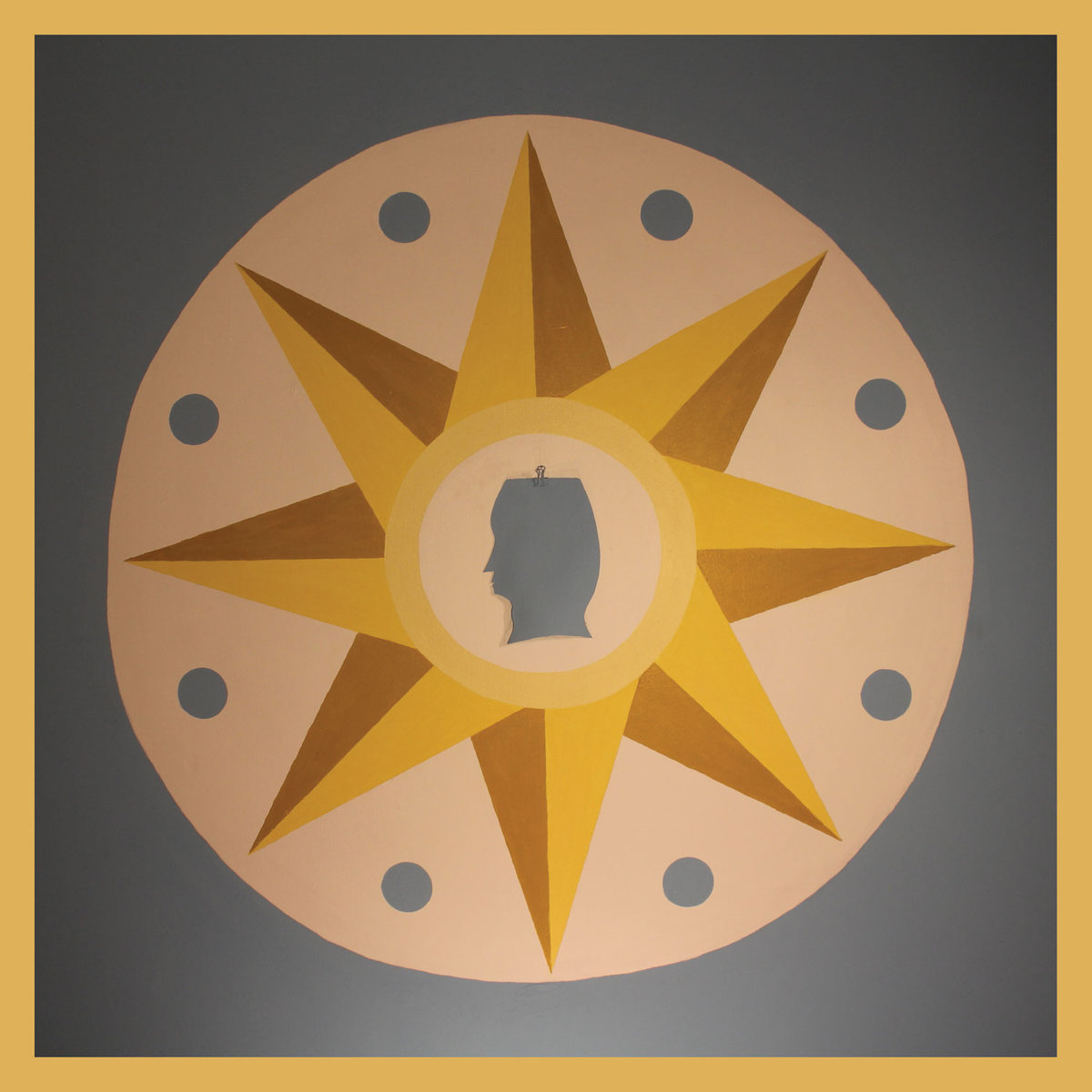
The Morning Star [Three Lobed]
‘The Morning Star’ is the new album from guitar virtuoso Daniel Bachman, where he merges elements of folk and country with elements of ambient & drone music. A combination that I didn’t expect to enjoy so much.
Courageously, the first 6 minutes of the album are the most unsettling. Bowls are struck and their long, tonal tails push and pull at each other, ominous voices pollute the atmosphere and harsh screeches of metal intensify it. Then, slowly, a meditative chord fades in which holds on for the rest of this mammoth of a 19 minute opener. Guitar and a fiddle join, sometimes blending with the drone and sometimes breaking through the surface with wildly dynamic expressions from their players.
The album continues with songs that never really resolve, songs that could go on forever. The presence of field recordings is almost daunting at times, pushing against Bachman’s hypnotising guitar play with its thick, noisy uncleanness. But it’s choices like that which make ‘The Morning Star’ such an interesting record; the organ drones and guitar arpeggios might fool you into believing they are meant as musical wallpaper, but to me they sound more like paintings, their many details meant to be studied patiently. Unexpected things will start to catch your attention, like the siren on ‘Song for the Setting Sun III’ which wakes you momentarily from the trance you were in to remind you of your surroundings and the fact that it is not you in the ambulance. The track afterwards, however, reminds you of the fact that there was probably someone else in the ambulance; the dissonances are rich and plenty as the track develops before suddenly hitting a figurative stop around the 9 minute mark, where field recordings once again take over as Bachman repeats a frugal yet beautiful and accepting final motif.
‘Car’ is a remarkable track; one warm drone, accompanied later by the low hum of an engine motor. Then, the drone fades out and makes place for unsettling voices on the radio, barely understandable, with a slight reverb that makes the track sound like something from a distant, unpleasant dream that you once had.
And despite the album’s 1 hour and 14 minutes, the sizable length of closer ‘New Moon’ makes sense and you’re accustomed to it. As the title implies, this was only a cycle, and it gives you the idea that even though you might put away your headphones, ‘The Morning Star’ will find some way to continue playing in your head.
Troye Sivan – Bloom

Bloom [Capitol/EMI]
Arguably the most blatantly poppy record on this list, ‘Bloom’ isn’t as much about stylistic originality or vocal prowess, but about its celebratory attitude towards queer awakening.
Troye writes mostly simple lyrics about love, heartbreak and sex, definitely not groundbreaking topics for pop music, but to hear these things described by an openly gay pop-star is somehow still refreshing, and much needed for some. Still, there’s quite a lot to find if you unfold the songs’ sugary exteriors. Sivan moves from passionate lust to fragile dependance to nervous love, sometimes all in the same track, with remarkable ease, illustrating the tumultuous essence that is inherent to coming of age, maybe even more as a gay teen or adolescent.
Producer Leland peppers the album with 80s throwback elements, from the analog-esque synths used throughout to the huge snare on the title track. It cleverly complements anthems like the groovy ‘Dance To This’ with Ariana Grande and the seductive ‘Lucky Strike’, but Troye also delivers gorgeous heartbreak ballad ‘Postcard’ together with singer Gordi, and a somewhat experimental RnB cut that closes the album. This track in particular, called ‘Animal’, gives me high hopes for Troye’s future; while I love the triumphant personality of ‘Bloom’, it borders on formulaic sometimes, and I would be beyond happy if he continued experimenting with song structure, taking inspiration from the likes of Frank Ocean, Lorde and maybe even Tyler, The Creator.
Tim Hecker – Konoyo

Konoyo [Kranky]
I don’t think there’s an artist who got more listens from me this year than Tim Hecker. I only first discovered his music around August of 2017, but he has quickly become one of my favourite artists and biggest inspirations. So when his new album ‘Konoyo’ was announced, the release date couldn’t come soon enough for me.
Like any Hecker album, it’s a distinct new concept, idea and set of rules, while still pertaining to the compositional style and sonic architecture that return on may of his albums; shadowy and sorrowful, rich in textural sound design. The album’s track titles read like a dark poem on life and death (Konoyo means ‘this life’ while Anoyo means ‘afterlife’, both in Japanese), and Tim Hecker approaches these subjects in his own unique way, with electro-acoustic arrangements that set forth his melancholic harmonies.
On ‘Konoyo’, Tim hecker combines his raw, signature electronics with the instrumental sounds of a Japanese Gagaku ensemble. Gagaku is an ancient form of Japanese classical music, and features a ton of wind, string and percussion instruments whose exotic timbres can be heard throughout ‘Konoyo’.
But interestingly, it’s often not absolutely clear if what you’re listening to is instrumental, electronic or a bit of both. Take ‘Keyed out’, the album’s second single where high flute tones whistle and glitch violently against each other before the estranging main theme comes in. It masterfully displays how Hecker is completely in control of his sound and that even the ‘mistakes’ are carefully constructed.
String instruments screech and sing on ‘In mother earth phase’, pained against the soft minor chords and crystalline textures. It’s one of the many moving, compelling moments on ‘Konoyo’, an album that sounds like it’s grieving for a lost world and angry at the ones who destroyed it. Mystical and harrowing, it’s another note-worthy entry into Hecker’s impressive discography.
Ichiko Aoba – qp

qp [Victor]
2018 enjoyed the release of a new album from Japanese folk singer Ichiko Aoba. And seeing as the record is entirely sung in Japanese, I unfortunately didn’t understand a word of it. Still, ‘qp’ made it into this list because it’s simply a delightful listen.
Aoba writes gentle, traditional guitar songs and accompanies them with her breathtaking, small voice. Throughout the 37 minutes of runtime, these are the only instruments present but it is no matter; the arrangements of the songs are versatile and hold the listeners attention cleverly, and each song has its very own flavour when it comes to rhythm, harmony and melody, all important musical aspects that Aoba has a skillful hold on.
Due to its skeletal nature and my lacking knowledge of the Japanese language, this is all that comes to mind about this record. But do yourself a favor and give it a listen when you are in need of music that soothes the soul.
Nils Frahm – All Melody
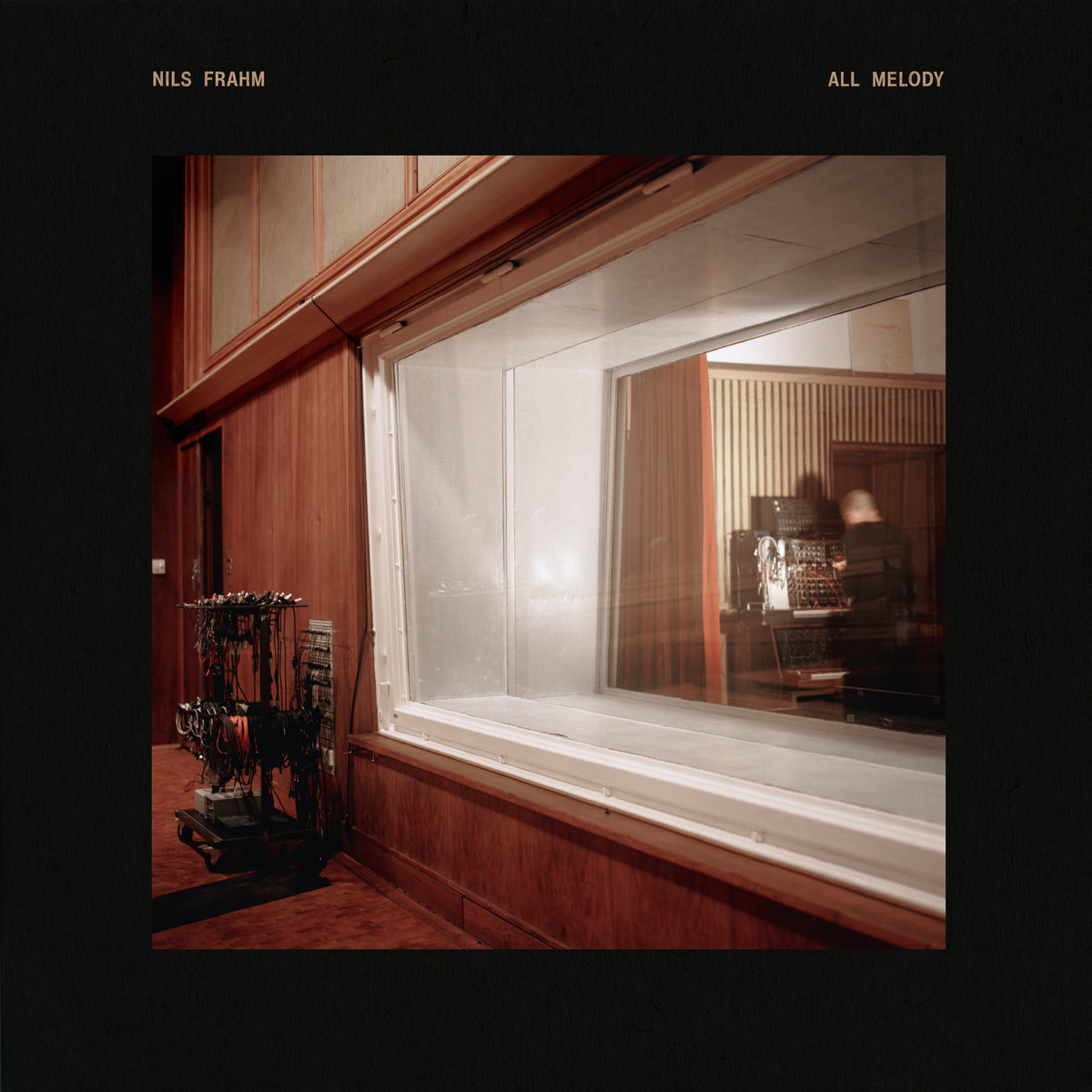
All Melody [Erased Tapes]
Famous and wildly popular mostly for his calming piano works, Nils Frahm returned in 2018 with his ambitious ‘All Melody’ album, a project that I was excited to hear but didn’t leave a strong impression at the start. However, over the year this album grew on me immensely, unfolding as a case study of sorts, on melody and patience.
Because at 1 hour and 14 minutes long, and half the tracks being at least 7 minutes long, this album tests your attention span, with many song evolving as slow as they can without becoming dull or uninteresting.
The sound on ‘All Melody’ is well polished, sculpted with care by Frahm and his producers until every reverb tail was exactly long enough, every organ tone was perfectly textured.
The resulting slow progressions are precisely what makes the album so immersive, but you need to surrender yourself to it.
While much of Frahm’s earlier work is based around the piano, the instrument only takes on the main role a handful of times on ‘All Melody’. An example is the gorgeous ‘My Friend the Forest’, with its longing theme and deliciously felt-textured recording.
But on most tracks, Frahm prefers laying out his ideas with organ, voices, string instruments and synthesizers. The fragile trumpet against dreamy ambience on the ominous ‘Human Range’ is another highlight of Frahm’s skill in bringing out the hidden qualities of an instrument.
Contemplative is another word that fits the album; the repetitive arpeggios on the title track and ‘#2’ invite the listener to drown in the sound, let themselves be hypnotised by Frahm’s deep club-like drums and polyrhythms. ‘#2’ excels here especially: when the chords come in after the 3 minute mark it’s as if the song slowly exhales and opens up to new interpretations and movements. Eventually the bass drum disappears and the chords increase in brightness and width, as arpeggio turns into melody and back again. It’s a symphonic and stunning progression.
Melody is, successfully, very much the unifying element on this album full of melancholic moods. There is so much to look for in these patient arrangements, and when you’re done looking you turn the wistful themes inside out and apply them to your own complexity.
Chrome Sparks – Chrome Sparks

Chrome Sparks [Counter]
A pleasant surprise for me this year was the self-titled debut from ‘Chrome Sparks’. I’d been listening to a handful of his songs for a couple of years already, but I wasn’t sure his sound would fit the album-format. Seeing as he appears on this list, you can deduce that I was in the wrong.
In his songs he prefers sparkling analogue synths, repeating arpeggios, spring reverbs and drum machines over the synthetic cleanliness that is popular in a lot of electronic music nowadays. But all these elements are bound together by a more modernist attitude, with Chrome Sparks using his synths to play many harmonic and melodic layers and sound effects. He has developed his sound over the years and polished it into something that truly belongs to him. It might sound somewhat retro or akin to synthwave music, but there’s an extra spice to Chrome Sparks’ production that makes him stand out.
There’s catchy sing-alongs like ‘What’s It Gonna Take’ and the amazing ‘All Or Nothing’, where Angelica Bess sings over an expansive instrumental featuring a smooth bit of bass guitar and even a section of brass at the end. Mellow cuts like ‘Sugar’ and ‘Wings’ can’t rely on vocalists, but Chrome Sparks has made sure these tracks didn’t end up as filler. In fact, my personal favourite on this entire thing is probably the track ‘O, My Perfection’. It starts with a water-like intro and turns into this lovely, calming house track with a great vocoded hook and a set of simple but effective chords and captivating melodies.
This debut album is of perfect length at 43 minutes, and has Chrome Sparks showing off exactly what he’s good at: crafting electronic music that you can (sometimes) sing to, dance to or chill to. It’s versatile within the uniformity of its sound, features capable vocalists and refined, lively production. A somewhat overlooked record if you ask me, so be sure to give it a shot.
Low – Double Negative

Double Negative [Sub Pop]
‘Double Negative’ by veteran band Low was without a doubt one of the most talked about albums of the year. Although I knew none of the band’s earlier material, I was convinced by the many rave reviews and mostly the album’s minimal cover art to give it a listen.
And from the first seconds of ‘Quorum’, it is obvious that Low are not messing around. Rarely have I heard an album that utilises distortion and sonic destruction in such a spectacular manner, while also managing to uphold a beautiful, ambient atmosphere.
This is where ‘Double Negative’ excels for me; it’s gorgeously produced, with passage after passage exploring a new corner of the mesmerising dystopia that is portrayed throughout the songs.
The arrangements develop slowly, rumbling moodily before vocals from either of the band’s two vocalists cut through the foggy instrumental like a knife through butter. The carnage of ‘Tempest’ is nothing short of mind bending; it sounds as if someone turned up the gain so far the knob came off, and the band decided it only made the track sound better. And they wouldn’t have been wrong, ‘Tempest’ is simultaneously the worst and best sounding track on the album: when the bass in the second half hits I am each time forced to close my eyes and let it tear through me.
Another song on the album that continuously baffles me is the prestigious ‘Always Trying To Work It Out’. Again, distortion is abused to an extent that it is almost scary, but also the use of sidechain on this track is phenomenal. The way the gigantic kick-drum stomps away the rest of the instrumental only adds to the spacious enormity of the song.
Contrast once again proves itself as a vital ingredient to the success of a conceptual album, and Low know this. While the album pummels at your eardrums many a moment, there is also time for stillness and reflection, like on the drone cut ‘The Son, The Sun’. And while I will admit that, as a music producer who is especially fascinated with sound and texture, and thinks that those elements tend to overshadow Low’s more than decent songwriting, the breathtaking lyrics on ‘Dancing and Fire’ (‘It’s not the end, it’s just the end of hope’) do steal the show, effective against the sparse, echoing guitar.
While maybe not my favourite album of the year, ‘Double Negative’ will undoubtedly have a lasting effect on me as a musician with all its dazzling productional elements, all its grand atmospheres, and I can only have great respect for the band for making an album that sounds as daring and bold as ‘Double Negative’.
Floex & Tom Hodge – A Portrait of John Doe
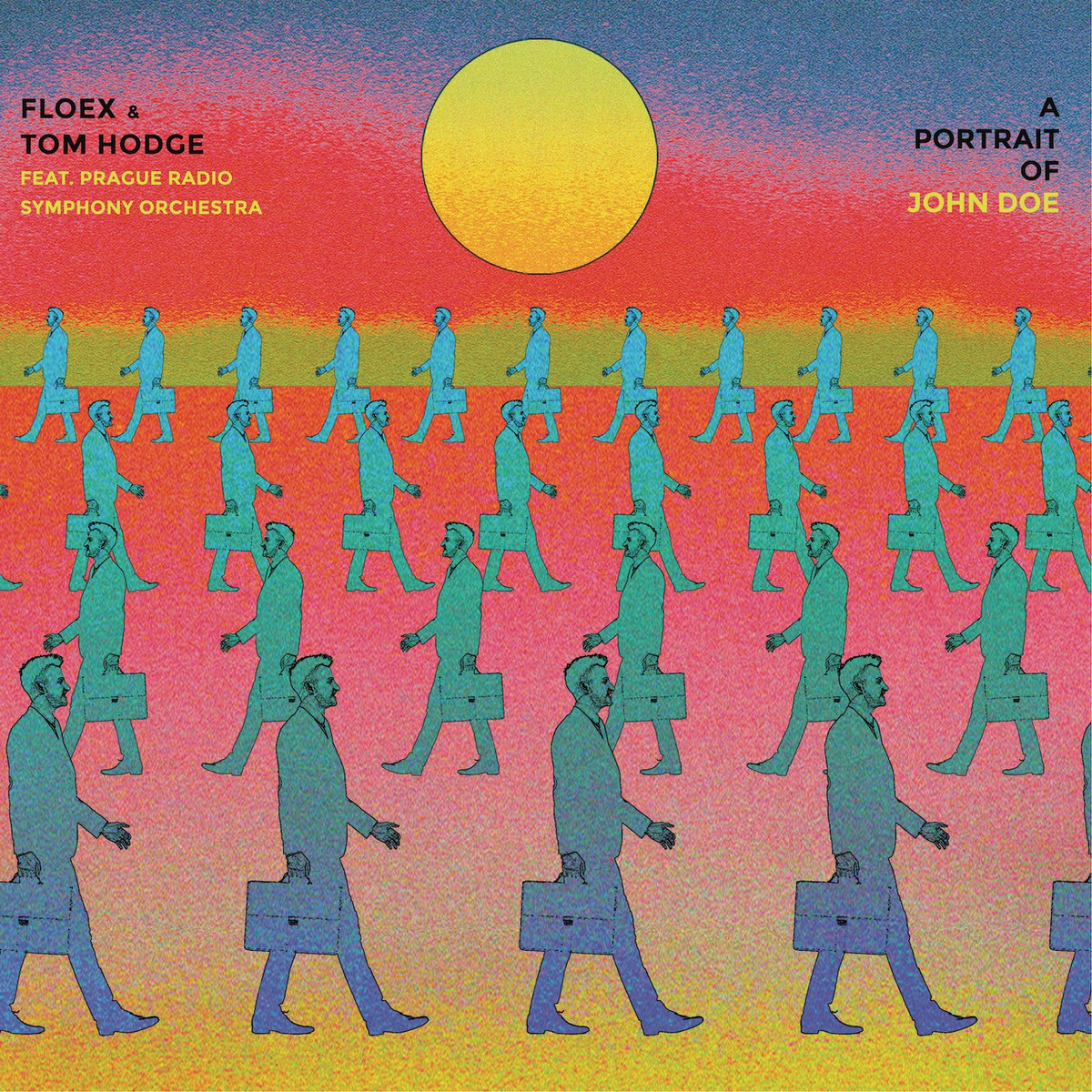
A Portrait Of John Doe [Mercury KX]
For me the most interesting collaborative project of the year, Floex and Tom Hodge’s ‘A Portrait of John Doe’ is an album that combines orchestra and electronics like no other. The many flavours of sound coalesce and form a transcendent whole.
Strings and brass soar on the intro track, accompanied by feverish drums that are rich in details; from expansive reverbs to small clicks and pops. This exquisite attention to detail puts itself forward as one of the album’s great strengths, and electronic effects are used as a great tool.
While a bold combination, it’s not something new for orchestra and electronic to work together on a record, yet Floex and Tom Hodge have managed to make the two worlds blend together so seamlessly in a way that I have not heard before. Where on many projects, either the orchestral or the electronic will be treated as the prime focus, whereas on ‘A Portrait Of John Doe’, they are two sides of the same coin.
The material on the album is largely driven by energetic beats, that in themselves blur the line between organic and acoustic, at times. Usually flurried in nature, they propel the track forward with burst of huge drums and streams of clattering percussion.
Notable moments are: the beautiful midway passage on ‘John Doe Arise’ that fizzles out to make way for the second half of the album, the enormous, catastrophic buildup at the end of ‘Prelude I’ and the melodic magnitude of the ominous closer ‘Requiem’.
This album paints a portrait of John Doe with many sonic colours; chaotic, beautiful, hunted, agitated, just to name a few. To me, there seems to be a lot of frustration and honest desire on this album, desire for a ‘better’ world where people are free to make their own lives instead of being brought down by the many hidden traps laid by society, bureaucracy, technology, you name it.
Halftribe – For The Summer, Or Forever
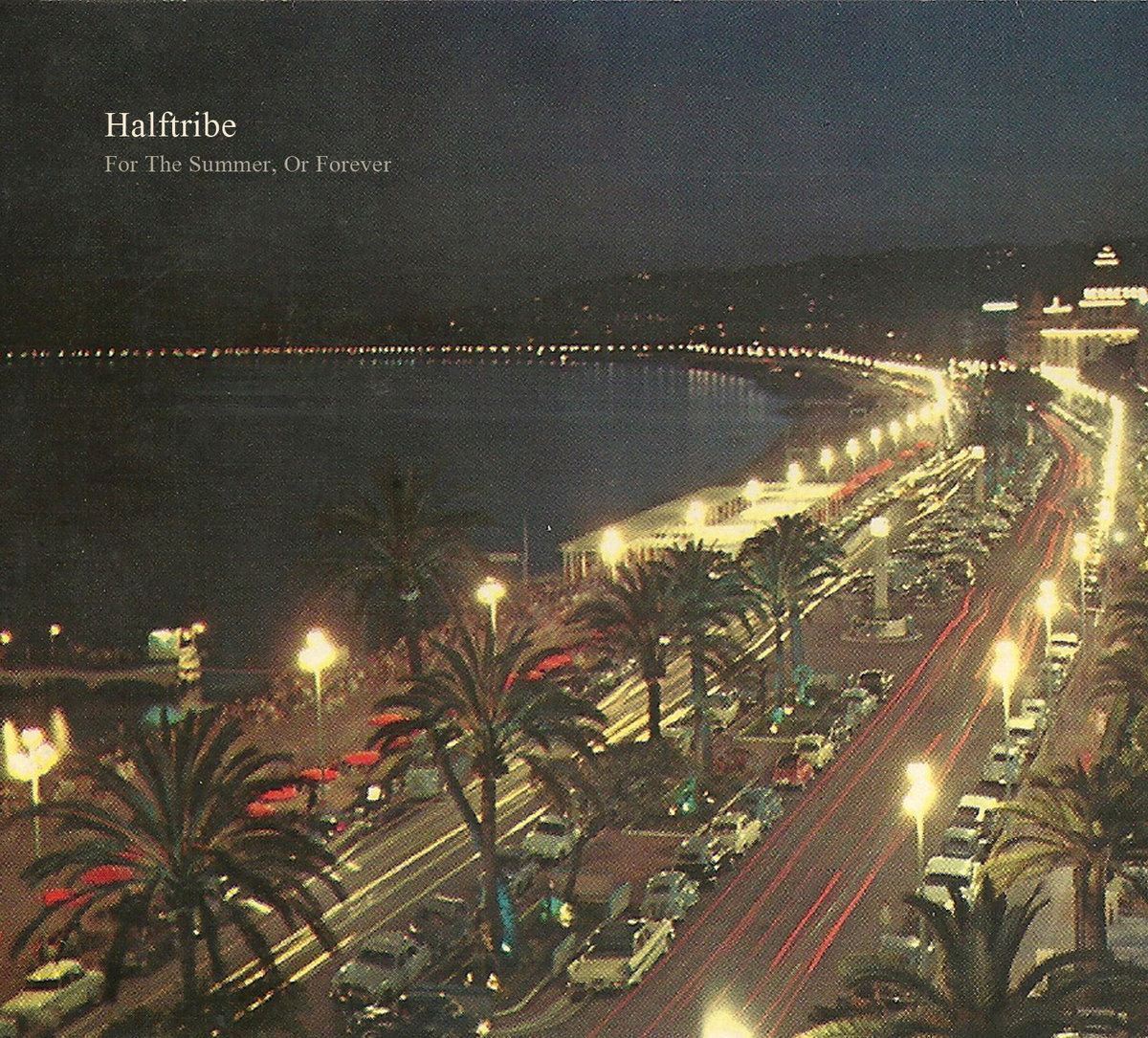
For The Summer, Or Forever [Dronarium]
Halftribe’s beautiful album ‘For The Summer, Or Forever came out in May and it is, as the title suggests, the perfect album to listen to when you’re outside, on a warm summer afternoon, with a gentle breeze in your face and your worries forgotten. Also, in the category ‘Best Album Title’, it absolutely gets my vote.
Where the earlier covered ‘Eistla’ sounded river-like, Halftribe takes wind and the sky for his account. ‘For The Summer, Or Forever’ breathes warmth and buries you under a blanket of delightful textures, while not descending into the reverby haze that is often associated with this type of music.
Halftribe has a unique way of incoorperating (often rhythmic) themes into his music, making his sound very singular in the realm of ambient and drone music. The pulsing chords in ‘Swimming Of That Sombre Shore’ really do sound like just that, a shore that the waves gently crash against time and time again. The way different layers are stacked on top of each other and arranged over time is beyond interesting and allows you to really lose yourself in all the intricacies that this album has to offer. Halftribe carefully walks the line between background music and music that you want to focus on, a remarkable feat.
Field recordings and the odd vocal sample help set the atmosphere throughout the record, suggesting real places in a vivid way not unlike on Bibio’s masterful ‘PHANTOM BRICKWORKS’ album from last year.
Dorian Concept – The Nature of Imitation
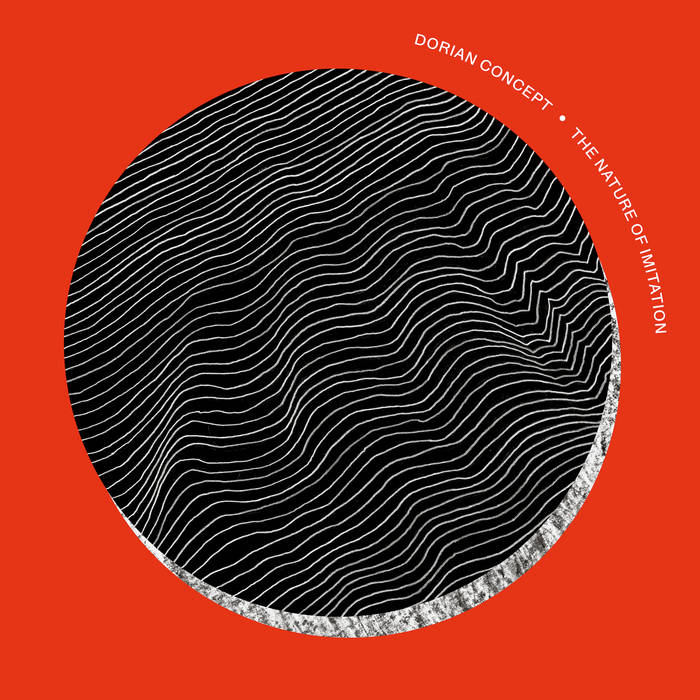
The Nature of Imitation [Brainfeeder]
As one of the many killer releases that came from the Brainfeeder front this year, ‘The Nature of Imitation’ is a jittery, jazzy, joyous album whose many melodies successfully fought the record into my favourites list. With never a dull moment, the tracks switch from intimate productions to grander musical statements with ease, either with gradually stretched builds or abrupt, effect-heavy freefalls.
While definitely jazz-flavoured, Dorian Concept doesn’t shy away from repeating chord progressions and catchy melodies that listeners will be able to hum along with without a problem. If anything, he cleverly chooses said compositional styles as moments to dazzle the listener with complex, video game-esque (for lack of a better descriptor) sound design, fixed to his detailed, fast-paced rhythms. All the impossibly detailed textures execute a particular mission that the album’s title already suggests; many sounds will show up only once in a track, exiting only a mere moment after they’ve introduced themselves, but their job is done: they have imitated another element in the track, adding to the musical context, complicating the sonic structure and most of all toying with the listeners mind.
The melody on ‘No Time Not Mine’ descends along with the chord progression, accompanied by some bold drum breaks. Personal favourite ‘E13’ begins with many elements hopping from left to right before introducing the main melody about 2 minutes in. The bulk of the track is then spent exploring this melody and its variations in several dynamic contexts, first played by synthesizer, then with voices, and later even something that sounds like a flute, but only for a short moment.
‘The Nature of Imitation’ is like cooking an elaborate 3 course-meal in a very limited amount of time. And for some reason the kitchen is built into a theme park ride. Perhaps a strange metaphor, but the way this album barrels through your hearing, barely giving you enough time to figure out if what you’re hearing makes any sense, your patience and imagination are tested. But in this test there is an incredible amount of fun to be had. Instead of trying to follow everything as it happens, let Dorian Concept pour all his melodies and textures over you like warm water in a bath, pick out your favourite elements and let the rest serve as colourful context.
Somni – Bloom
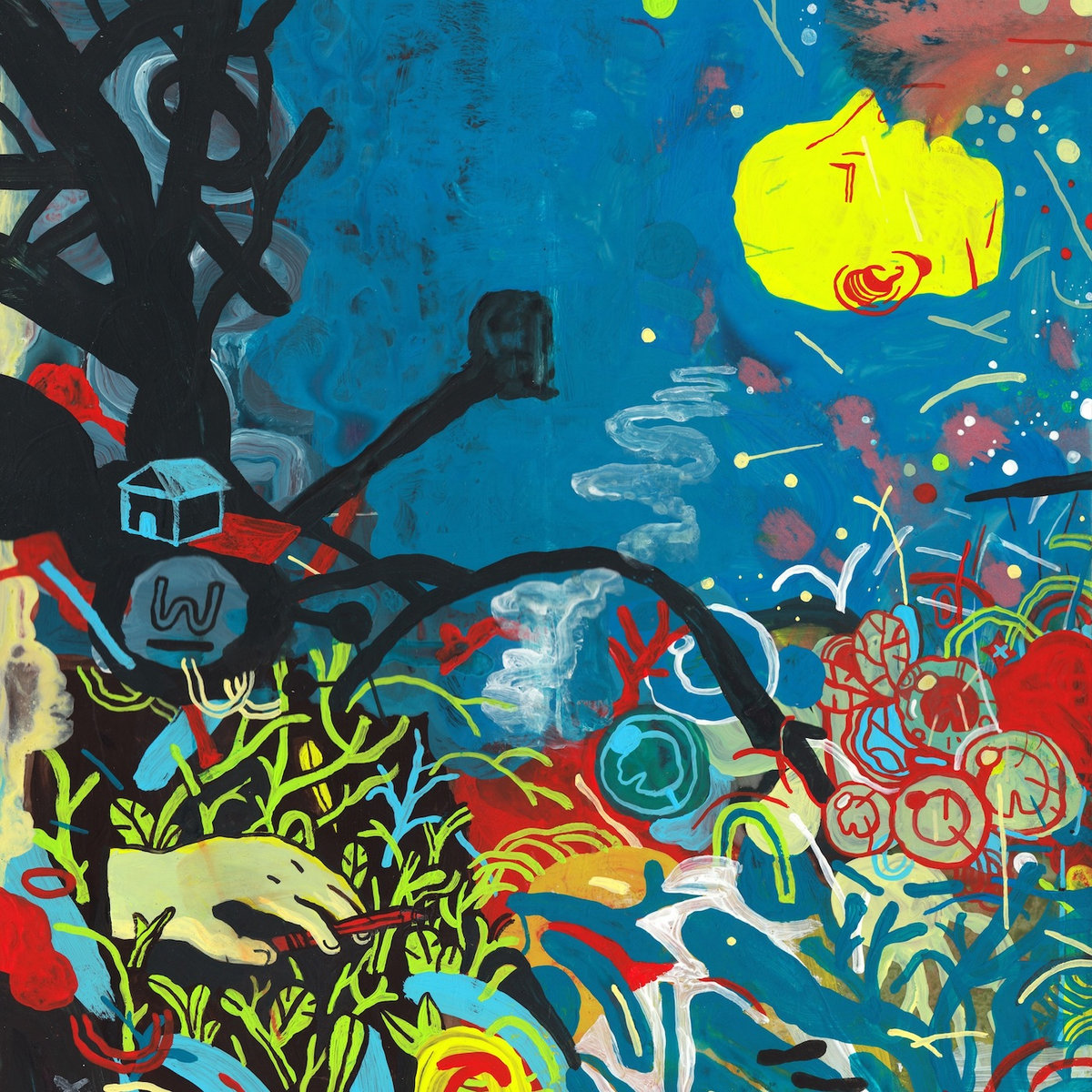
Bloom [Friends of Friends]
Here we have the list’s second album named ‘Bloom’, but the title has a very different connotation for this newcomer. When the first single of the mysterious Somni dropped on Spotify, I was instantly intrigued. The debut album followed several months later, and proved itself to be a hugely promising debut.
On ‘Bloom’, Somni presents 10 excellently produced cuts of electronic music. The tunes are vibrant and full of glitchy colour, with an immense amount of detail that Somni batters your ears with. Resemblance can be drawn to beat tapes and indie music, but Somni takes his music a step further by switching up the vibe regularly. ‘Overgrown’ radiates trap vibes, whereas the hit ‘Silver’ sets an atmosphere with wonky beats and soulful samples.
Aptly titled, this album sounds like the growing off small plants, the flourishing of an insect ecosystem, the gentle rustling of a forest river. Background noise permeates throughout the record as a sort of sonic glue, while tracks continuously zoom in and out, weighty kicks stomping about as many reversed percussion sounds whir past the ear.
Interlude ‘The Air Outside’ offers just enough tranquility to prepare for the second half off the album, which continues in a similar manner as the first. Somni has an undeniable talent for creating lopsided beats that miss their marks in the most satisfying way, sucking away the volume of the bass and other elements.
But also, he is not shy of toying around with melody and harmony; ‘Before You’ especially features some beautiful tonal movements, that stay just long enough to stick and then make way for something new.
All in all, this Somni album is very exciting and a treat to the focused ear. Definitely do not miss anything this guy comes out with in the future.
JPEGMAFIA – Veteran

Veteran [Deathbomb Arc]
There’s no one who did ‘hype’ like rapper and producer JPEGMAFIA in 2018 on his album ‘Veteran’. I was amused and intrigued by his artist name and the titles on the album, and while ‘Veteran’ is often hilarious, it’s also full of provocative lyrics and raw lo-fi production.
The songs are short, often shorter than 3 minutes, and range from moody and slow to chaotic and rapid.
In ‘Baby I’m Bleeding’, the beat only comes in at halfway point, but JPEGMAFIA keeps it interesting until that time with his lawless production style, mangling vocal samples and screaming ‘FUCK!’ a few times. The turbulence is consistent throughout the album, with little to no pauses to recover or process a track because the next beat has already set in. There’s a sense of ragged control about his production, like he first disfigures his source material so far to the point where it sounds broken and unusable, only to then unite it all and make it all bounce again each other, and it works.
His voice is versatile, sometimes frenzied, other times gloomy and every once in a while Peggy even does a decent job at singing. And mirroring his own production, he switches between rhythms and timbres menacingly quick, in short bursts. On ‘Panic Emoji’ there’s a sudden mix of grief and frustration. ‘These symptoms, can’t help them. Where my health went, this hurts’ are his low words, a direct personal realness where the usual directness is saved for criticizing politics, social justice, everything and anyone.
‘Veteran’ stands out because of Peggy’s confrontational lyricism and frantic production. He will make you feel uncomfortable, he will make you laugh like on ‘I Cannot Fucking Wait Til Morrissey Dies’, and he will make you scream and shout along to his words while the fractured instrumentals ravage your eardrums.
SOPHIE – OIL OF EVERY PEARL’S UN-INSIDES

OIL OF EVERY PEARL’S UN-INSIDES [Transgressive/Future Classic]
After an EP, numerous productions for giants like Vince Staples and Madonna, electronic music magician SOPHIE released her long-awaited debut album in 2018. Due to its lengthy (but beautiful) title I will call it OOEPU-I from now on.
Opener ‘It’s Okay to Cry’ is an artpop anthem where SOPHIE sings with an asmr-like quality, telling the listener that really, it’s okay to cry. It’s a sound that we haven’t heard from her before, so sensitive and focused on vocals.
The next two tracks however, return to more familiar SOPHIE-sounds. Her production is incredibly clean and tight; the percussion sharp and metallic, the textures crunchy and industrial and the bass heavy and pummeling. The peculiar lyrics on ‘Faceshopping’ also stand out: ‘My face is the front of shop, my face is the real shop front, my shop is the face I front, I’m real when I shop my face.’
A fun duality on OOEPU-I is how tracks can be alienating and unifying often at the same time. The atmospheres she creates are otherworldly, sanitary and plastic, but her lyrics are so human that it’s impossible not to find something to relate to.
Variation is also plenty on OOEPU-I. After her curious whispering in ‘Infatuation’, the album descends into the relentless machinery of ‘Not Okay’ and even further into the dark density of drone piece ‘Pretending’.
And then temporarily, your spirits are lifted with the bubbly ‘Immaterial’, the funnest tune on the album, before plummeting back into the 9 minute rave suckerpunch ‘Whole New World/Pretend World’.
It’s an oddly arranged rollercoaster of moods, sound palettes and artistic statements, but OOEPU-I is undeniably exciting and impressive. SOPHIE has complete control over her sound and can make it do whatever she wants, and I feel like this album maybe only showed us the tip of the iceberg in terms of what she’s capable of.

